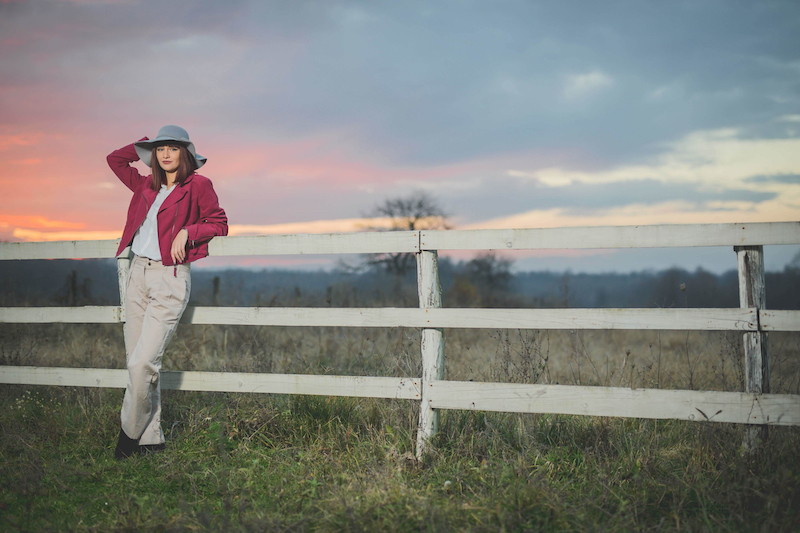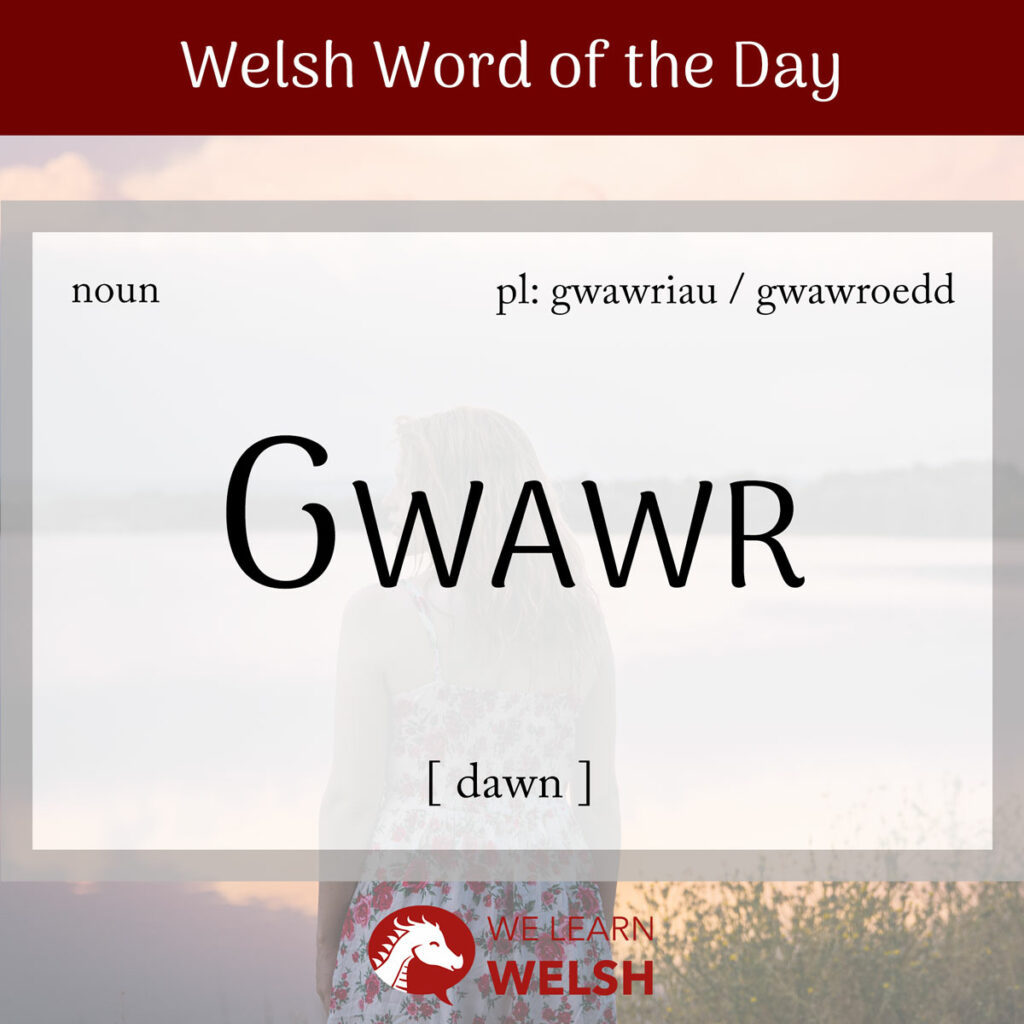Gwawr is the Welsh word for dawn, and also a fairly popular girl’s name. It may also be used to mean sunrise, although that is technically the literal translation codiad haul. The plural can be either gwawriau or gwawroedd.
gwawr
dawn
gwawriau
dawns
Though they sound very different, gwawr is actually a cognate to some other familiar words meaning dawn, like aurora in Latin and Ancient Greek’s eos. It came to Welsh through the proto-Celtic root *waris. It’s probably also connected to the word for dawn which was used in Middle Irish, fáir.
The similarity to *waris is a lot more evident when you consider the soft mutation of the word:
Soft mutation
wawr
Nasal mutation
ngwawr
Aspirate mutation
N/A
And it does show up in its mutated form quite often. Importantly, as it’s a feminine noun, it becomes wawr instead of gwawr after the definite article – the dawn is y wawr.
If you want to say that something happened at dawn, you should go for the expression gyda’r wawr (literally with the dawn). You could also choose gyda thoriad y wawr (with the break of dawn).
There are a lot of different words, many very beautiful, to describe the dechrau (beginning) of the dydd (day) in Welsh. I like the phrase yn y bore bach (in the little morning) which is used for early morning, and the poetic alternative y bore gwyn.
A lot are based on the word dydd (a day / daytime) too.
- toriad y dydd
- glasiad dydd / glasddydd
- chwip y dydd
- gwawrddydd
Bear in mind that in Welsh, dydd refers specifically to daytime, while a 24-hour period is called a diwrnod. This makes it quite intuitive that the words mentioned above relate to dydd – they’re not so much referring to the start of the day in general, but rather to the beginning of the period when the haul (sun) is out.
After the gwawr, the dydd moves into the bore (morning), canol dydd (midday), prynhawn (afternoon), noswaith (evening), machlud haul (sunset), and eventually nos (night).
The word gwawrio means to dawn. You can actually use this metaphorically, as in gwawriodd arna i (it dawned on me). If you’re specifically talking about the day dawning, though, gwawrio also has a few synonyms, like the lovely dyddhau and dyddio. These are very poetic, literary choices.
Byddwn ni’n gadael y tŷ cyn y wawr.
We’ll leave the house before dawn.
Gwawriau are known for their beautiful lliwiau (colours) of oren (orange), aur (gold) and pinc (pink). The word itself can also be used as a synonym of arlliw (hue or shade) though this is falling out of fashion.
Perhaps because of those vibrant colours, humans often associate y wawr with gobaith (hope), golau (light), and newid (change) for the better. Many ancient crefyddau have a specific duw (god) or duwies (goddess) associated with y wawr or yr haul (the sun).
Because of the association with gobaith, the gwawr also comes up a lot in the context of the names of political and social organisations.
For example, the Welsh equivalent of the Women’s Institute in Lloegr (England) is actually called Merched y Wawr (Girls of the Dawn). It was established in response to the WI in Cymru (Wales) deciding to make English the sole language of the cyfundrefn (organisation), when it had previously provided an important opportunity for women to socialise in the medium of Welsh. The headquarters of Merched y Wawr are in Aberystwyth.
There are also a lot of famous cerddau (poems) about y wawr and all that it represents. A little closer to home, Gwawrio is the name of the debut poetry collection published by Tegwen Bruce-Deans, a winner of both the cadair (chair) and coron (crown) at the Urdd Eisteddfod under the pen name Gwawr. It’s a lovely book – I’d recommend it!


